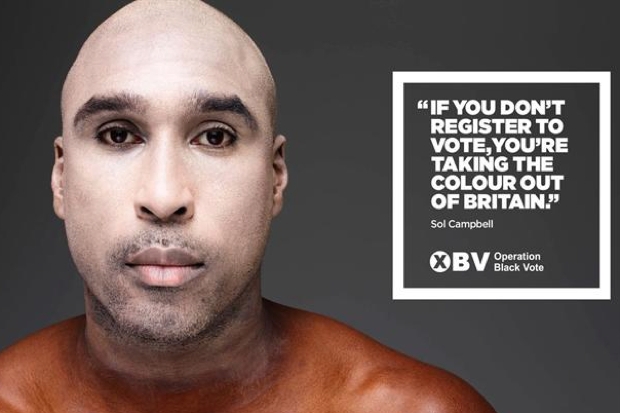The voting booth is, to borrow a fitting phrase from history, the great leveller. Outside the voting booth, you might be a blinged-up billionaire with more yachts than most people have shoes, but inside you’re the same as everyone else. In that booth the billionaire becomes indistinguishable from the poor woman who shines his silver: both have the exact same power to determine the future of Britain. One cross for the billionaire, one cross for the silver polisher. For a moment, she’s as powerful as her boss.
It’s the most magnificent thing about democracy: it takes no heed of wealth or race or sex and instead treats us as human beings; it levels us. ‘One person, one vote.’ That booth is one of the few places on Earth where you’re a person — not rich or poor, not male or female, not black or white; just human, brilliantly and brutally equal to every other human.
Most popular
The CPS is desperate for a backdoor blasphemy law
Today, however, this old great levelling ideal is under attack. The universalism of the democratic process is being elbowed aside by the sectionalism of PC, which now invites us to bring the baggage of identity into the voting booth with us. Forget ‘One person, one vote’ — now it’s ‘One black person, one vote’; ‘One woman, one vote’; ‘One gay person, one vote’. We’re no longer simply voters — we’re black voters, female voters, young voters, old voters, gay voters.
This PC communalism, this replacement of levelling with boxing-by-identity, is summed up in the latest advertising campaign of Operation Black Vote. Designed to get more ethnic-minority people to cast their ballots, the ads feature well-known black people — actor David Harewood, footballer Sol Campbell — with their faces ‘whited up’: that is, daubed in white paint. The slogan says: ‘If you don’t register to vote, you’re taking the colour out of Britain.’ In a piece for the Guardian explaining the ads, Harewood points out that 24 per cent of racial minorities aren’t registered to vote, in comparison with 8 per cent of white people, meaning that ‘the issues that matter to us’ aren’t being aired.

Ade Adepitan
There are so many things wrong with this campaign. To begin with, imagine if someone made the ads the other way round. Imagine if the EDL printed posters featuring white people with blacked-up faces, next to the words: ‘If you don’t vote, you are taking white issues off the agenda.’ There would be outrage, rightly, at such a naked attempt to racialise the election, to divide voters according to colour. Yet that’s what Operation Black Vote is doing: it’s suggesting that blacks and whites have different interests — ‘issues that matter to us’ — and that voters should think racially at the ballot box. It’s racialising the election. After all, if there is a ‘black vote’, there must also be a ‘white vote’, right?
The ads also have a hint of the old racial trope of ‘Uncle Tom’. The white-painted faces suggest that if you as a black person fail to vote, then you’re a whitey, in essence: an enabler of the white man. The foul racist pejorative of ‘coconut’ — to describe a black person who has allegedly sold out, meaning he is black on the outside but white on the inside — is expressed in a new way in these ads. The whited-up faces effectively say that if you fail to vote then you’re a reverse coconut: black on the inside, but white on the outside; white in terms of your impact, or lack of impact, in the world of politics.
Operation Black Vote isn’t alone in playing the identity card pre-election. Everyone’s at it. There was Harriet Harman’s pink bus designed to get more women voting. There are campaigns devoted to getting the youth vote out. The Tories are more keen on the ‘grey vote’. The
Economist recently wondered who would secure the ‘pink vote’: no, not women — gay people.
It’s so divisive. This electoral separatism pitches the young against the old (youthful envy and fury with the baby boomers is one of the ugliest things in this election); it cuts women off from men; it encourages black people to inject their ‘colour’ into politics in order to offset the influence of other colours. But black people aren’t a monolithic bloc, all with the same ‘issues that matter to us’, just as gay people aren’t all cut from the same (fabulous) cloth. A black builder has more in common with his fellow white builders than he does with a black company boss. A homosexual on benefits has more in common with a heterosexual on benefits than he does with Sir Elton John. Where democratic politics levelled us, giving us equal power regardless of our natural characteristics, the politics of identity flattens us: it treats black people as a bloc pitched against white people; gay people as an amorphous mass different to the straight mass; and so on. It depersonalises the individual and divides the nation.

David Harewood
This communal compartmentalism speaks to a profound crisis of univeralism. The humanist dream of escaping the shackles of biology and gender and being valued for what we think rather than what we are is dying. So much so that, now, even the voting booth, one-time place of pure personhood, is being invaded by race, gender, age. Don’t go along with it. Say ‘No’ to being a pink or grey or black voter. Let’s reclaim the great Levelling spirit of the 17th century and celebrate democracy’s power to make commoners — ‘belonging to all mankind alike’: OED — of us all.









Comments